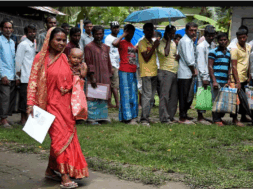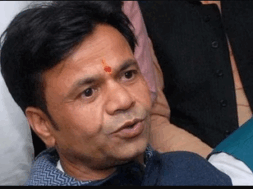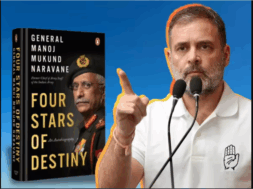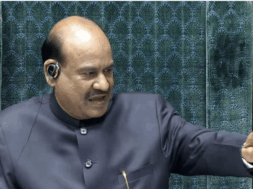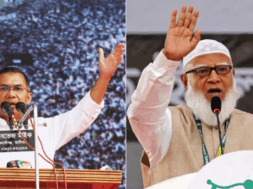
International Crimes Tribunal Begin Probe against Sheikh Hasina, Others, UN Team to Bangladesh Next Week
Manas Dasgupta
NEW DELHI, Aug 15: Bangladesh’s International Crimes Tribunal has started an investigation against the deposed Prime Minister Sheikh Hasina and nine others on charges of genocide and crimes against humanity that took place during the violence from July 15 to August 5 when the students had launched a mass movement against her Awami League government.
A complaint was filed on Wednesday with the investigation agency of Bangladesh’s International Crimes Tribunal against Ms Hasina, Awami League general secretary and former Road Transport and Bridges Minister Obaidul Quader, former Home Minister Asaduzzaman Khan Kamal, and several other prominent figures within the party. The complainant’s lawyer Gazi M.H. Tamim confirmed on Thursday that the Tribunal had started the probe.
In addition, a team of UN experts will visit Bangladesh next week to investigate the killings of the protesters ahead of and in the aftermath of Sheikh Hasina’s resignation as the prime minister last week, it was announced on Thursday.
This will be the first time the UN is sending a fact-finding mission to Bangladesh since its independence in 1971 to investigate widespread human rights abuses in the country, according to a UN official, said a post on X by the Chief Adviser of the Government of Bangladesh.
Muhammad Yunus took oath as the Chief Adviser of the interim government on August 8, days after Sheikh Hasina’s government collapsed and she fled to India on August 5 amid violent protests over quota reforms for government jobs.
“The United Nations is sending a UN fact-finding team next week to probe atrocities committed during the Student Revolution in July and early this month. UN human rights chief Volker Turk announced the move when he called Chief Adviser Professor Muhammad Yunus late Wednesday,” the Chief Adviser of Government of Bangladesh said in a post on X, the handle for which is run by Muhammad Yunus’ office.
Bangladesh descended into chaos last week after Sheikh Hasina’s departure while the Army stepped in to fill the power vacuum on August 5. Before that, the anti-government protests had killed more than 500 people since mid-July.
Meanwhile, Volker Turk assured his support and said an inclusive human rights-centred approach would ensure the transition succeeds. Volker Turk in a post late on Wednesday night said, “Promising phone call with @ChiefAdviserGoB Muhammad Yunus. I assured him of @UNHumanRights Office’s solidarity with the people of #Bangladesh & our support to the interim govt at this pivotal time. An inclusive, human rights-centred approach will ensure this transition succeeds.”
Earlier on Wednesday, after his phone call with Turk, Yunus had posted: “The UN human rights chief, @volker_turk has made a phone call to Bangladesh Chief Adviser Professor Muhammad Yunus on Wednesday.” “A team of UN experts would soon visit the country to investigate [the killings],” Volker Turk told Chief Adviser Professor Muhammad Yunus today during a phone conversation.
Muhammad Yunus said in a connecting post on X: The UN rights chief said an UN-led investigation would be launched very soon to probe the killing of the protesters during the Student Revolution. Human rights will be the cornerstone of his administration and the protection of every citizen is the top most priority of the government, Muhammad Yunus, who has sought UN cooperation to uphold human rights, said.
“The Chief Adviser thanked him and his long-time friend Antonio Guterres, the UN Secretary-General, for supporting the Bangladesh students’ revolution and championing their rights during unprecedented and devastating killings of student protestors,” Muhammad Yunus said in the series of posts.
The petition in the Tribunal against the Hasina government was filed by Bulbul Kabir, the father of Arif Ahmed Siam, a Class IX student who was killed during the anti-discrimination student movement. Mr Kabir’s application accuses Ms Hasina and others of orchestrating a violent crackdown on student protestors, resulting in widespread casualties and human rights violations.
The complaint came on a day when the interim government said the murders conducted within the period from July 1 to August 5 would be tried by the International Crimes Tribunal. Separately, a case of enforced disappearance was filed on Wednesday against Ms Hasina and several others, including former Ministers of her Cabinet, on the charge of kidnapping a lawyer in 2015.
A Dhaka court on Thursday also asked the police to submit by September 15 the probe report of the case filed against Ms Hasina and six others over the death of grocery shop owner Abu Saeed in police firing in the capital’s Mohammadpur area during the quota protests on July 19. On Tuesday a murder case was filed against Ms Hasina and six others over the death of the grocery shop owner.
Dhaka Metropolitan Magistrate Md Zaki Al Farabi set the date after the case was placed before his court for the next course of action. The student-led protests demanding reforms in government job quotas evolved into a government-toppling movement in early August.
Over 230 people died in Bangladesh in the incidents of violence that erupted across the country following the fall of the Hasina Government on August 5, taking the death toll to 560 during the three weeks of violence.

